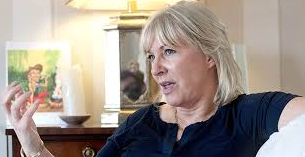
The race heats up as accusations of “dirty tricks” are levelled against Rishi Sunak’s team, while MPs prepare for the first ballot in the Tory leadership battle.
As the race to succeed Boris Johnson intensifies, Tory MPs will cast their votes in the first ballot of the Conservative leadership contest on Wednesday, with eight contenders still in the running.
Rishi Sunak, former chancellor, and Foreign Secretary Liz Truss have secured the backing of over 20 MPs, allowing them to progress to the first round of voting. Also advancing are Penny Mordaunt, Nadhim Zahawi, Jeremy Hunt, Tom Tugenhat, Suella Braverman, and Kemi Badenoch.
Sajid Javid, however, withdrew just moments before the announcement, as did backbencher Rehman Chishti and Grant Shapps earlier in the day.
In a packed Westminster schedule, candidates participated in a series of hustings on Tuesday evening, offering MPs the chance to hear their pitches. The second round of voting will take place on Thursday, with MPs needing to secure 30 votes to stay in the race.
Meanwhile, tensions have flared as Nadine Dorries, a staunch Boris Johnson loyalist, accused Rishi Sunak’s campaign team of orchestrating “dirty tricks” to boost his chances. The Culture Secretary, now backing Liz Truss for the top job, claimed that Sunak’s camp engineered the voting outcome to ensure Jeremy Hunt made it through to the next round, knowing he would be easier to defeat.
Dorries took to Twitter, calling it a “stitch-up” and referring to it as “dark arts”, accusing Sunak’s supporters of manipulating the vote. This followed a suggestion that Gavin Williamson, a backer of Sunak, had arranged for votes to be siphoned off to let Hunt pass the first hurdle.
Hunt’s team strongly denied these allegations, with a source from his campaign labelling them “categorically untrue”. The source added that Hunt was focused on running a campaign based on his merits, free from personal attacks.
The leadership contenders have also been lining up prominent figures within the party to gain endorsements. Liz Truss garnered support from key Johnson allies, including Dorries, Jacob Rees-Mogg, and James Cleverly, as part of an effort to prevent Sunak from succeeding the former prime minister.
The Foreign Secretary’s campaign received a further boost when Home Secretary Priti Patel, a fellow right-winger, announced that she would not be standing, clearing a path for Truss.
Elsewhere in Westminster, tensions were high as the Labour Party accused the government of “running scared” by refusing to allocate parliamentary time for a no-confidence vote in Johnson’s administration.
Notably, Kemi Badenoch, former equalities minister, launched her leadership bid, vowing to avoid engaging in a “tax cut bidding war” and criticising other candidates for trying to please voters with unrealistic promises. Meanwhile, Tom Tugenhat, chair of the Foreign Affairs Committee, proposed a 10p reduction in fuel duty to kickstart his campaign, defending his lack of ministerial experience.
Nadhim Zahawi, the current Chancellor, shrugged off criticism from Bank of England Governor Andrew Bailey regarding his tax proposals, asserting that they were “fully costed” and setting out his stall for the role of prime minister.
In an increasingly combative campaign, allies of Boris Johnson have intensified their attacks on Sunak, labelling him the “high-tax chancellor” and blaming him for failing to address the warning signs of rising inflation.
Launching his bid for the leadership, Sunak emphasised that cutting taxes would only be possible “when inflation is under control”, hitting out at rivals who promised immediate tax cuts. Backed by Deputy Prime Minister Dominic Raab, he argued that it was “not credible” to pledge tax reductions while increasing spending.
While Zahawi criticised Sunak’s cautious approach, he insisted that cutting taxes was essential to addressing the cost-of-living crisis. Zahawi also took the opportunity to voice his strong support for traditional family values, noting that the importance of family had been sidelined in Westminster.
The first ballot of voting will determine which candidates advance to the second round. Those failing to secure 30 votes will be eliminated. The process will continue through the week, narrowing the field until just two candidates remain, who will compete for the Conservative Party leadership over the summer. The final result will be announced on 5 September, after Tory members vote to choose their next prime minister.












